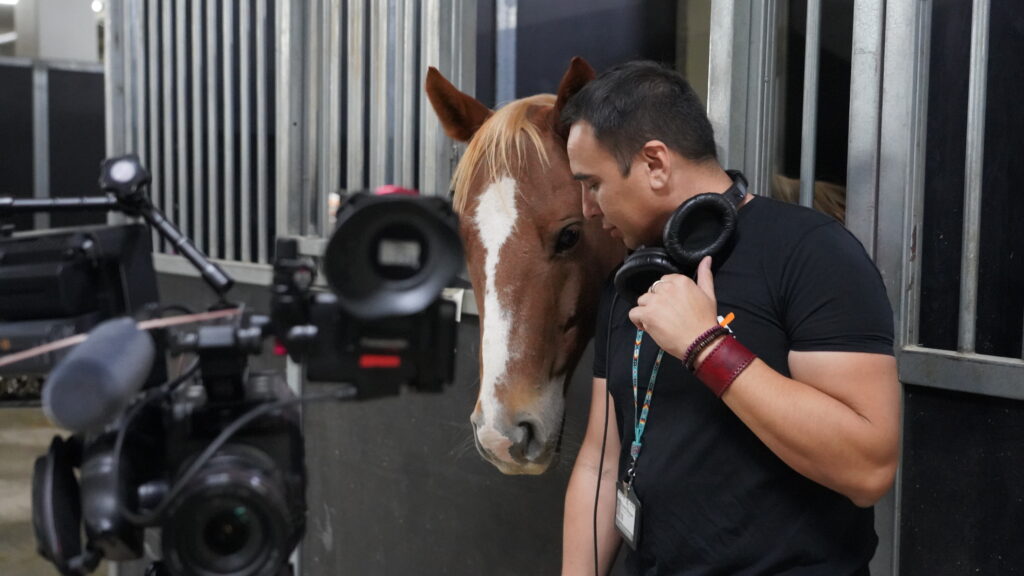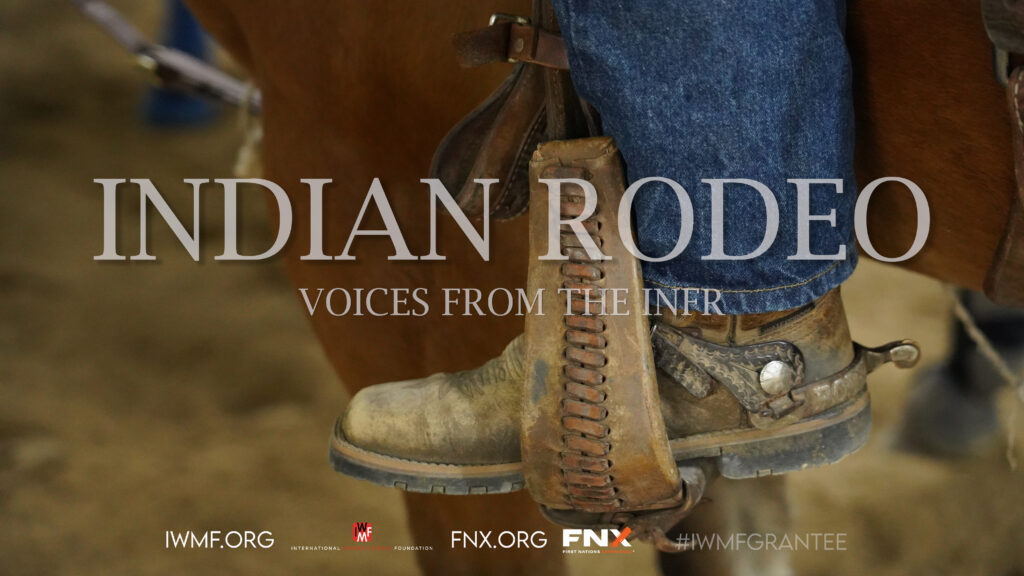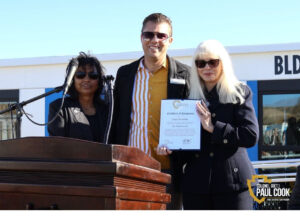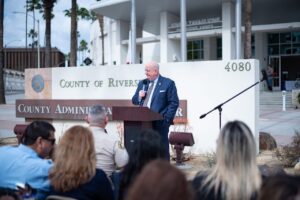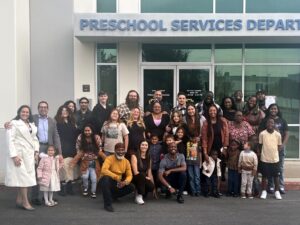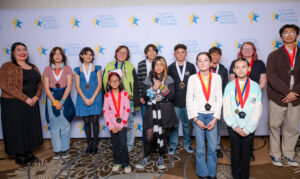Historic Win for Indian Country and the Inland Empire: San Bernardino’s FNX Wins Emmy for Best DEI Program
4 min read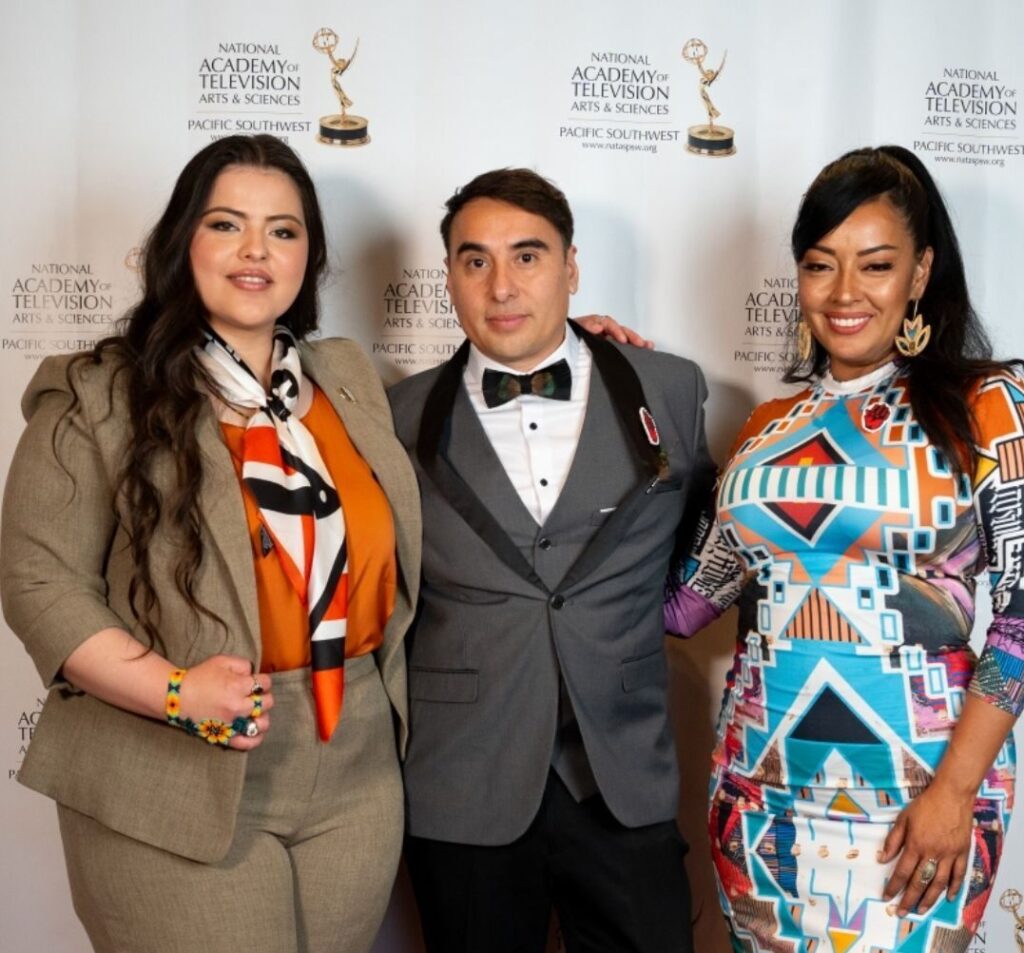
(Left to right) Mariana Lapizco, Frank Blanquet, and Sahar Khadjenoury on the Emmys red carpet on June 15, 2024.
Last week’s Emmy Awards celebrated a significant triumph for Indian Country and the Inland Empire as “Indian Rodeo: Voices of the INFR,” produced by San Bernardino’s FNX – First Nations Experience, won the Emmy for Best Diversity, Equity, & Inclusion Program. This landmark victory marks a major milestone in the representation of Indigenous stories and the remarkable efforts of Indigenous female athletes in the competitive world of rodeo.
The documentary, directed and produced by Frank Blanquet and Sahar Khadjenoury, who are both TV and Film Producers for FNX, was also nominated alongside their film “Native Hope Champions: Riding for the Missing.” Blanquet shared the inspiration behind the Emmy-winning project, highlighting the rapid turnaround from receiving a grant from the International Women’s Media Foundation Fund for Indigenous Journalists to covering the rodeo circuit. “We had about a week between finding out about the grant and the rodeo happening,” Blanquet explained. “The half-hour “Indian Rodeo: Voices on the INFR” documentary evolved after a great conversation about Missing and Murdered Indigenous Women, Girls, Two-Spirit, and Transgender People (MMIWG2T) that didn’t make it into the “Native Hope Champions: Riding for the Missing” film.”
The documentary was shot over nine days at the South Point Hotel & Casino in Las Vegas during the Indian National Finals Rodeo in October 2022. It was supported by the International Women’s Media Foundation’s Fund for Indigenous Journalists: Reporting on MMIWG2T.
Sahar Khadjenoury, also co-director and producer of both films, described the challenges faced while producing the documentary. “Something we had to overcome was the weariness from some of the female athletes, as we were from an outside entity,” Khadjenoury said. “Some athletes were unsure at first, as this was about their murdered and missing indigenous relatives, and we were asking them to do interviews during a highly attended competitive event. Frank and I sharing our clan backgrounds helped drop the tension. We are Indigenous storytellers, telling other Indigenous stories.”
Khadjenoury recalled a poignant interview with athlete Shayla Conner (Northern Cheyenne), who shared her family’s tragic experience with a missing relative. “Her purpose in creating awareness was to ensure other families don’t have to go through what her family went through,” she said.
Blanquet emphasized the cinematic approach taken for the documentary. “We knew we needed high frame rate shots to capture the muscle expressions of the bulls and riders in slow motion. We didn’t shoot explicitly in documentary style but as a cinematic film,” he said. “We wanted to focus on the massiveness of the animals and the command these athletes, like Bailey Bates from the Navajo Nation, have over them.”
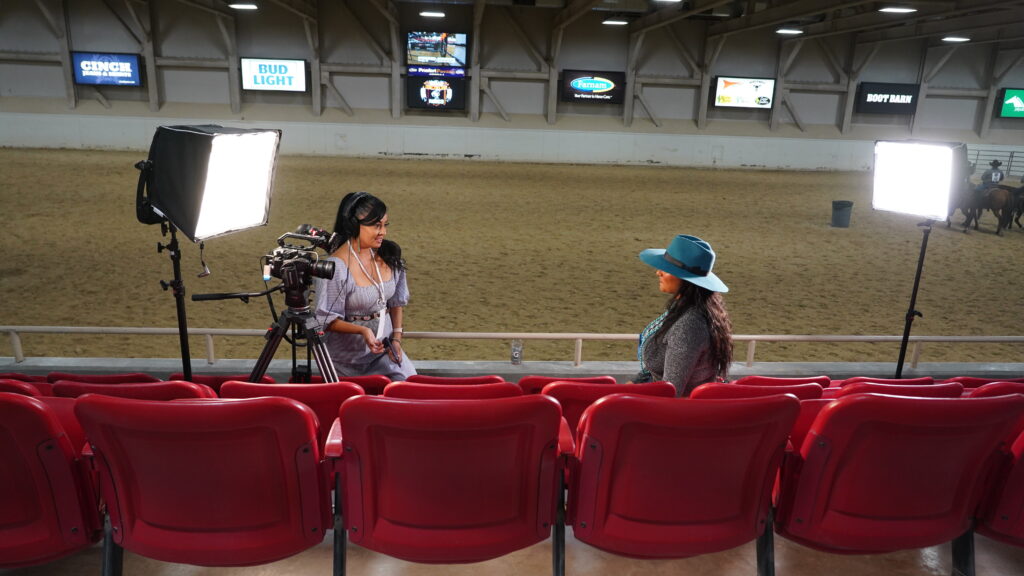
Mariana Lapizco, a production assistant and KVCR intern from Cuidad Obregon, Sonora, Mexico, and a recent graduate of the San Bernardino Valley College Film, TV, and Media Program, highlighted the importance of pre-production. “Every project starts with research, and everything we prepare in pre-production makes a successful production and post-production,” Lapizco noted. Lapizco is an intern at KVCR Public Media, who assists with FNX projects.
Reflecting on the Emmy win, Blanquet expressed the collective excitement and gratitude of the team. “It was all our first nomination, entry, and win.”
Lapizco said, “I remember recording as they announced the winners. It was surreal given my background, and I’m super thankful for these opportunities,” she said. “We wanted to celebrate this film and create more awareness, and the reception has been amazing from both Indigenous and non-Indigenous audiences.”
Khadjenoury added her excitement about meeting Donna Hoyt, the executive director of INFR, who had been supportive throughout the project. “I was really excited when we had the opportunity to meet Donny Hoyt at last week’s Emmys, it was really cool that she already knew about us, and she gave each of us a red MMIWG2T pin to wear,” she said.
The documentary can be viewed on FNX.org and will be available on the FNX app starting November 1st; FNX is exclusively devoted to Native American and World Indigenous content and is owned by KVCR-PBS San Bernardino. The award winning documentary captures the stories of barrel racers, cattle ropers, and a bareback bronc rider, highlighting how Native female athletes are making their mark in the sport and what makes the Indian National Finals Rodeo special to Indian Country.
This Emmy win represents a significant step forward in amplifying Indigenous voices and celebrating their contributions to sports and media, all while raising awareness for MMIWG2T.
